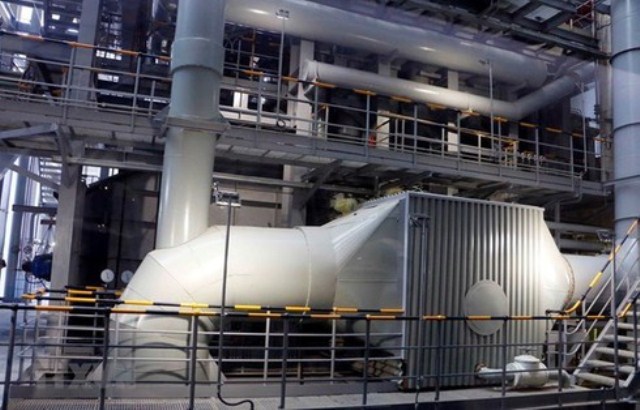Officials of the Mekong Delta city of Can Tho had a working session with representatives from the Japan International Cooperation Agency (JICA) on December 9 to discuss a project to reduce domestic waste in Can Tho in the coming time.

A corner of the waste-to-power plant in Can Tho (Source: VNA)
Speaking at the Can Tho meeting, JICA Chief Representative in Vietnam Konaka Tetsuo said the 3-million-USD 3R (reduce-reuse-recycle) project funded by the Japanese Government aims to form a system for reducing, reusing and recycling and encourage people to classify wastes at home.
Classification wastes at home and using waste-to-power technology will help not only treat wastes but also generate electricity, Tetsuo said, noting that Japan has successfully realised the initiative.
JICA hopes to become a bridge to popularise the technology in Mekong Delta localities, contributing to treating wastes and saving energy in the region, he said.
As planned, in the first quarter of 2020, experts from JICA will conduct a survey of habits and waste classification of local households, as well as the capacity of solid waste collection and management of the municipal authorities, thus mapping out an appropriate roadmap for piloting waste classification models at source in Ninh Kieu, Cai Rang, Binh Thuy wards and Thoi Lai district.
Tetsuo also stressed the need to raise public awareness of waste classification at source, and to improve the management capacity of local environmental staffs.
Vice Chairman of the municipal People’s Committee Dao Anh Dung thanked the JICA for its support for Can Tho in treating waste, saving energy and protecting the environment. He pledged that the municipal authorities will do their best to facilitate JICA’s survey.
The 3R project is considered as one of the most important goals of the city, he noted, adding that through the project, Can Tho hopes to receive more supports from the JICA.
thongtanxa